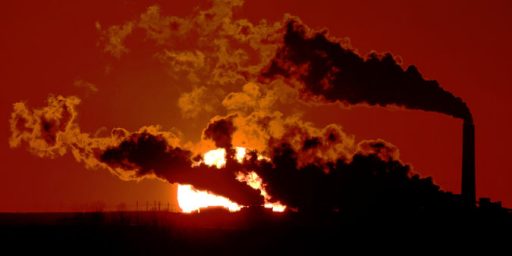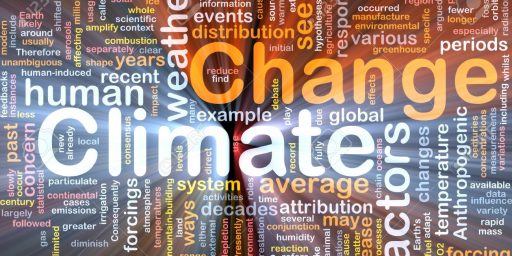Energy Resource
The Wall Street Journal has a blog called Energy Roundup.
The Energy Roundup collects and analyzes the day’s news in everything from oil to gas, from ethanol to wind power. Our sources include media from around the world. It is updated daily by WSJ.com Markets Editor Mark Gongloff and other WSJ.com editors and writers.
I know, I know, many are likely to say, “But it is the Wall Street Journal and they are rightwing scum.” Hold on though, and look at this post on Global Warming and Cap-n-Trade programs vs. Carbon Taxes.
It seems inevitable that, some day, Congress will pass legislation meant to cut greenhouse-gas emissions. And it seems likely that said legislation will involve a “cap-and-trade” system, putting a cap on emissions and creating a system of carbon permissions that can be traded on the open market.
The post really doesn’t take a stance on the issue and instead gives a brief over-view of each policy, links to who supports each policy, and the problems with each policy. Overall, if you are interested in energy issues, like me, then you should add this blog to your list of blogs to read.






Steve,
As a liberal who reads the WSJ everyday, I will say that they are almost the exact opposite of Fox News. While there opinion page is about as Republican-centric as any in the media, they have a pretty impressive wall between the opinion page editors and the news gathering operation. Frequently, I ignore the opinion pages but they at least try to keep blatant politics out of the news, which is the direct opposite of Fox in which you can’t tell the difference between opinion and the news most of the time.
I think that the WSJ would be better served by at least feigning respect for some opposing views in the editorial section, but you probably won’t find half as many liberals who have as significant a problem with the WSJ as they do with Fox.
One can only hope.
We may argue about the extent of human action on global warming, but I think we can all agree that dumping tons of CO2 into our atmosphere is not a good long-term strategy.
Even right wing scum wants it’s news accurate so the WSJ fills that need. As a right winger I add the bias later.
It would be tragic and foolish for Congress to cap CO2 emissions. One should understand some of the following, and get a grip on the dynamics.
Total human CO2 emissions primarily from use of coal, oil, and natural gas and the production of cement are currently about 5.5 GT C per year.
… it is estimated that the atmosphere contains 750 Gt C; the surface ocean contains 1,000 Gt C; vegetation, soils, and detritus contain 2,200 Gt C; and the intermediate and deep oceans contain 38,000 Gt C (3). Each year, the surface ocean and atmosphere exchange an estimated 90 Gt C; vegetation and the atmosphere, 60 Gt C; marine biota and the surface ocean, 50 Gt C; and the surface ocean and the intermediate and deep oceans, 100 Gt C (3).
When the Sun delivers extra energy, as it has done recently, the oceans warm and release extra CO2. An honest system of capping would be very difficult to administer even if it was not a stupid thing to do.
We all know that the CO2 capping scheme is nothing but a power grab by unelected and irresponsible administrators. The people of the United States would be the goats, and would bear the brunt of the costs. Why should our (?) Congress vote for such a thing?
RJN;** But you just don’t understand! This is an opportunity to raise taxes AND oppress people while scoffing at national and personal autonomy! All this and the BONUS of smug superiority!
The mob is at a fever pitch, the time to strike is NOW!!**
What RJN doesn’t understand is that those 5.5 GT of carbon were removed from the carbon cycle over millions of years starting millions or years ago.
We have been adding much if it back at a much faster rate. We are shifting the equilibrium, to what degree I don’t know, but any unbalanced changes to the total amount of carbon in the cycle will shift it.
We’re dumping almost all of it into the atmosphere, either it stays there or it gets absorbed somewhere else. Now wherever it gets absorbed, ocean, vegetation, whatever, now it’s equilibrium is off too, and it either has to offload the extra carbon somewhere else, or change itself to account for it.
A small change in temperature, even a few degrees, will put thousands of square miles of glacier ice above its melting point. It could put millions of tons of frozen methane above its melting point, setting off a self-sustaining chain reaction of global warming.
Our current ecosystem is not as stable as you might think. Indeed, it’s only been this was for a relatively (geologically) short period of time.